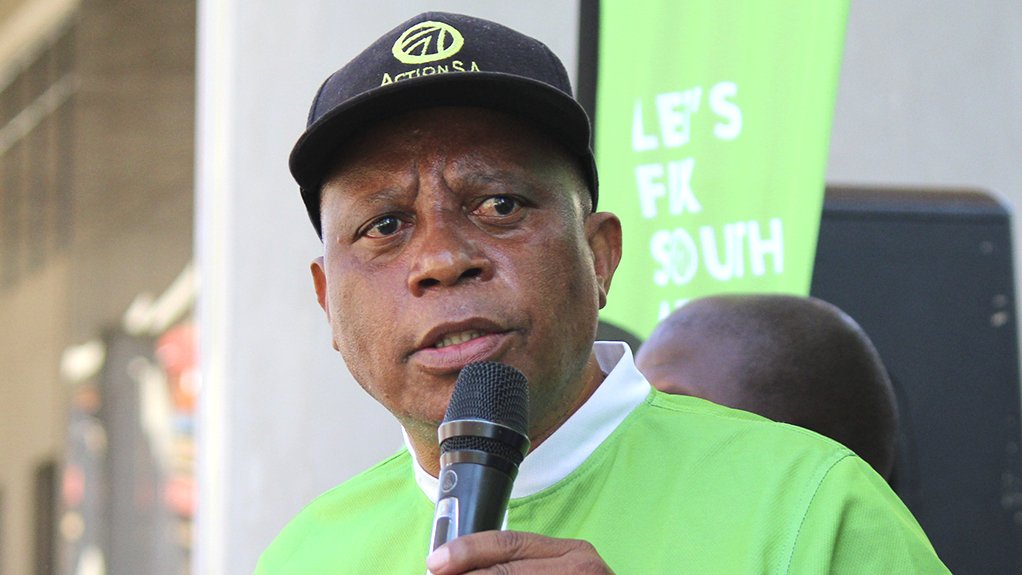By Johnathan Paoli
Some political parties have rejected the recommendations of a joint sitting of the Select and Standing Finance Committees, which propose going forward with the budget, but providing National Treasury with a month to find an alternative to the 0.5 percentage points VAT increase.
The committees’ recommendations of the fiscal framework triggered a fierce political battle, with the Economic Freedom Fighters and the Democratic Alliance vehemently opposing the decision.
The African National Congress)-backed ActionSA proposal, which seeks to amend the budget while still supporting the fiscal framework, has drawn accusations of betrayal and backroom deals.
The EFF condemned the adoption of the fiscal framework, calling the process “deeply flawed, incoherent, and illegal”.
Spokesperson and committee member Sinawo Thambo argued that the inclusion of a 0.5% VAT hike and the failure to adjust personal income tax brackets for inflation disproportionately harmed the working class.
“The EFF is unapologetic in rejecting the budget surplus obsession imposed by the National Treasury. If reversing inequality and mass unemployment leads to a wider deficit, so be it. We will not be complicit in fiscal policies that sacrifice black lives for credit ratings,” Thambo said.
He particularly criticised ActionSA for its perceived hypocrisy, accusing it of misleading the public by claiming to oppose VAT hikes while supporting the fiscal framework alongside the ANC and Inkatha Freedom Party.
The party dismissed ActionSA’s request that the Treasury find alternatives within 30 days as a “meaningless” tactic that effectively endorses the VAT hike.
As an alternative, the EFF proposed increasing corporate and wealth taxes while rejecting austerity measures, arguing that prioritising social justice is more critical than maintaining favorable credit ratings.
The DA also lashed out at ActionSA, accusing it of making a “despicable U-turn” by agreeing to a deal with the ANC to approve a 1% VAT increase over the next two years.
DA spokesperson Willie Aucamp argued that this decision would worsen the cost-of-living crisis and disproportionately impact the poor.
The DA had pushed for a budget that promoted economic growth, reduced government waste and avoided VAT hikes.
Aucamp warned that the ANC’s ability to push through the budget with ActionSA’s support set a dangerous precedent, allowing the party to sideline its Government of National Unity (GNU) partners when convenient.
DA committee member Mark Burke added that any alternative to the VAT increase must include spending cuts.
The DA tabled its amendments, which included scrapping the VAT hike while reducing government expenditure by R13.5 billion.
ActionSA leader Herman Mashaba defended the party’s position, stating that its support for the budget was conditional on key amendments.
He reaffirmed the party’s stance that the Treasury must rework the budget within 30 days to identify alternative revenue sources and expenditure reductions that cover the R29 billion shortfall.
Mashaba expressed confidence that the revised budget could be introduced without VAT hikes or salary adjustments, positioning ActionSA as a crucial balancing force in the debate.
During the committee session, multiple amendments were proposed.
The EFF suggested funding the shortfall through higher corporate taxes, a wealth tax, and land taxes on land used for luxury purposes such as game farming.
The uMkhonto weSizwe Party, similarly to the EFF, advocated for wealth and corporate tax hikes.
The ActionSA amendment was ultimately adopted, with six members voting in favour.
The DA, EFF, and MKP, however, have all argued that the proposal lacked legal standing as there was no formal provision for a 30-day budget revision period; and accused the recommendations of undermining the Money Bills Amendment Procedure and Related Matters Act.
With the committee’s recommendation, Wednesday’s vote will determine if the National Treasury has 30 days to identify alternative revenue and savings measures.
However, unless the VAT increase is formally reversed before the beginning of May, it will automatically come into effect.
The ongoing budget battle has sparked widespread public debate, with civil society organisations and economists weighing in on the impact of the proposed fiscal policies.
INSIDE POLITICS

